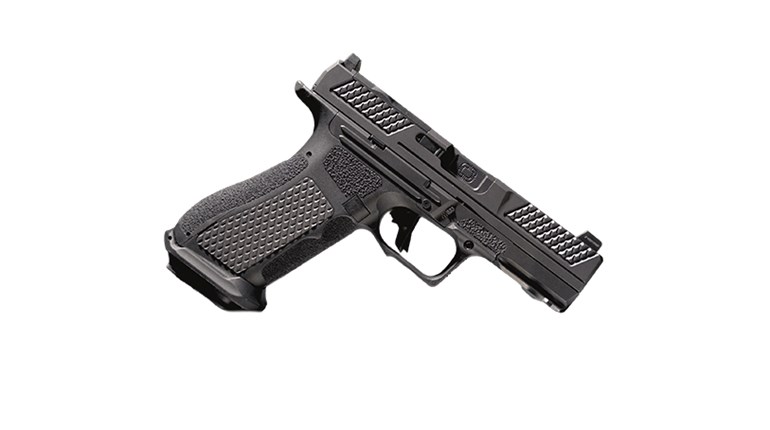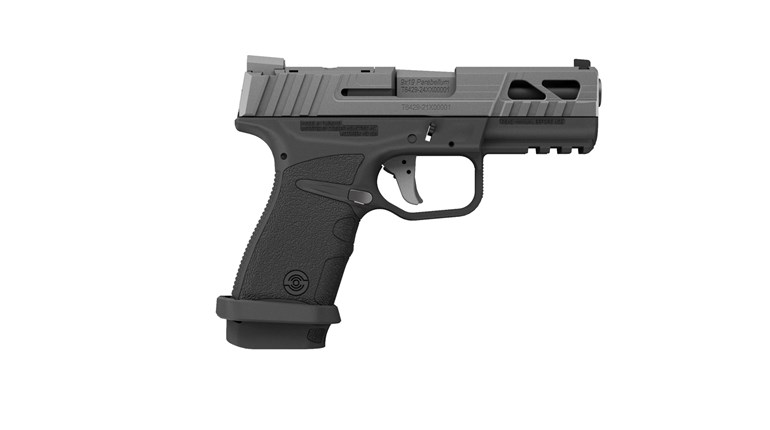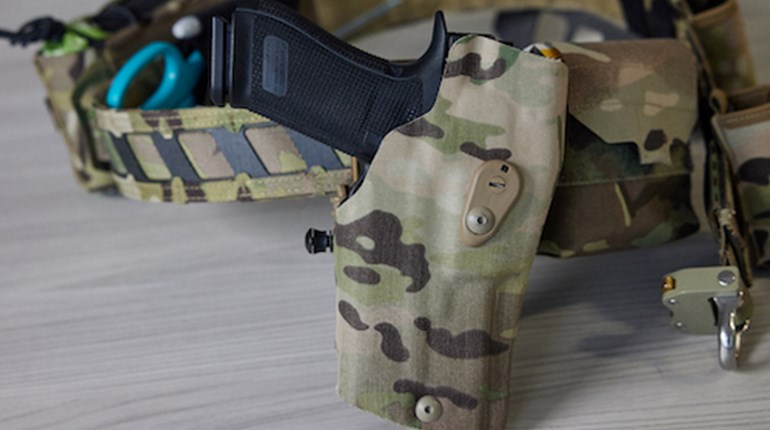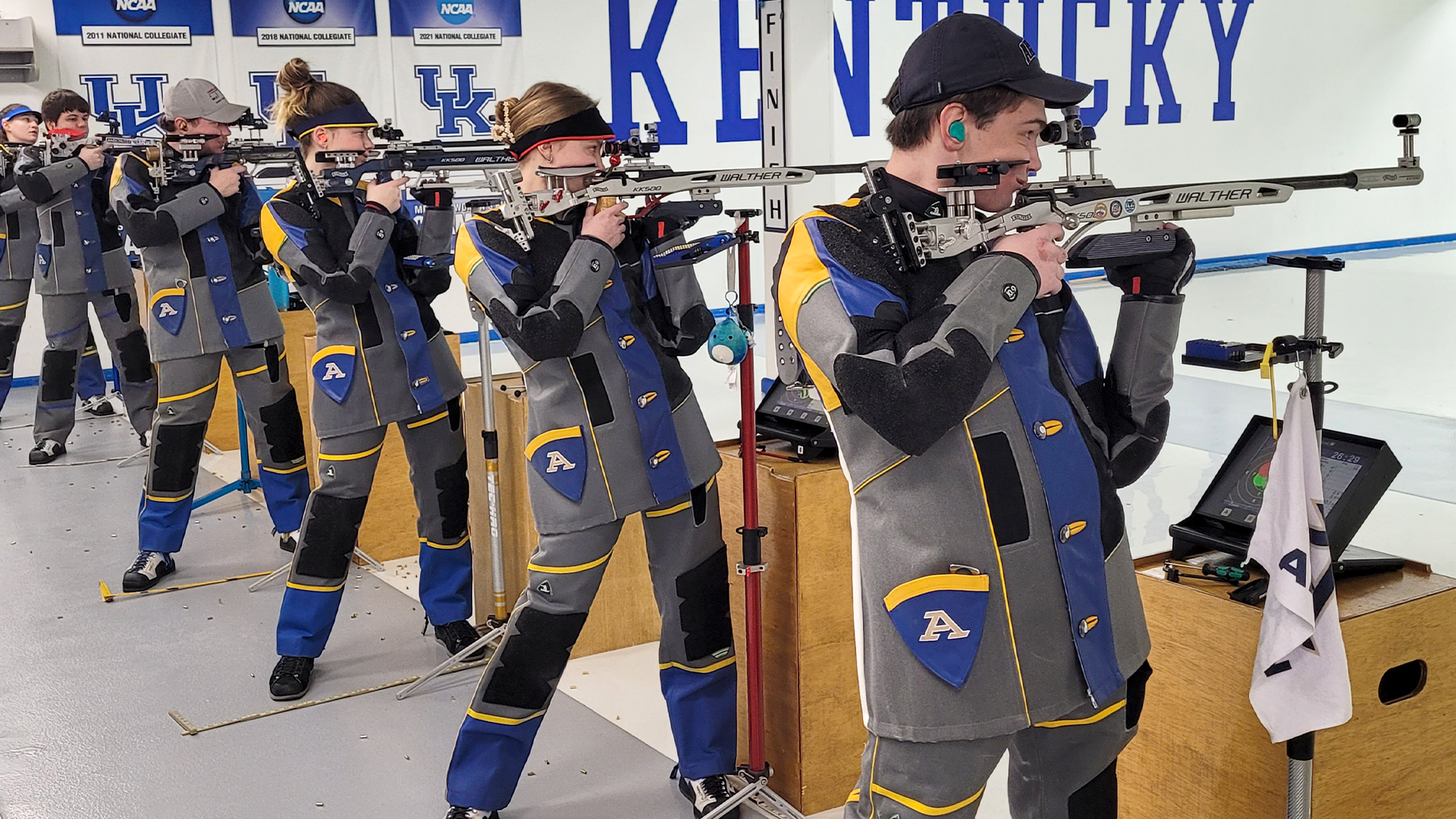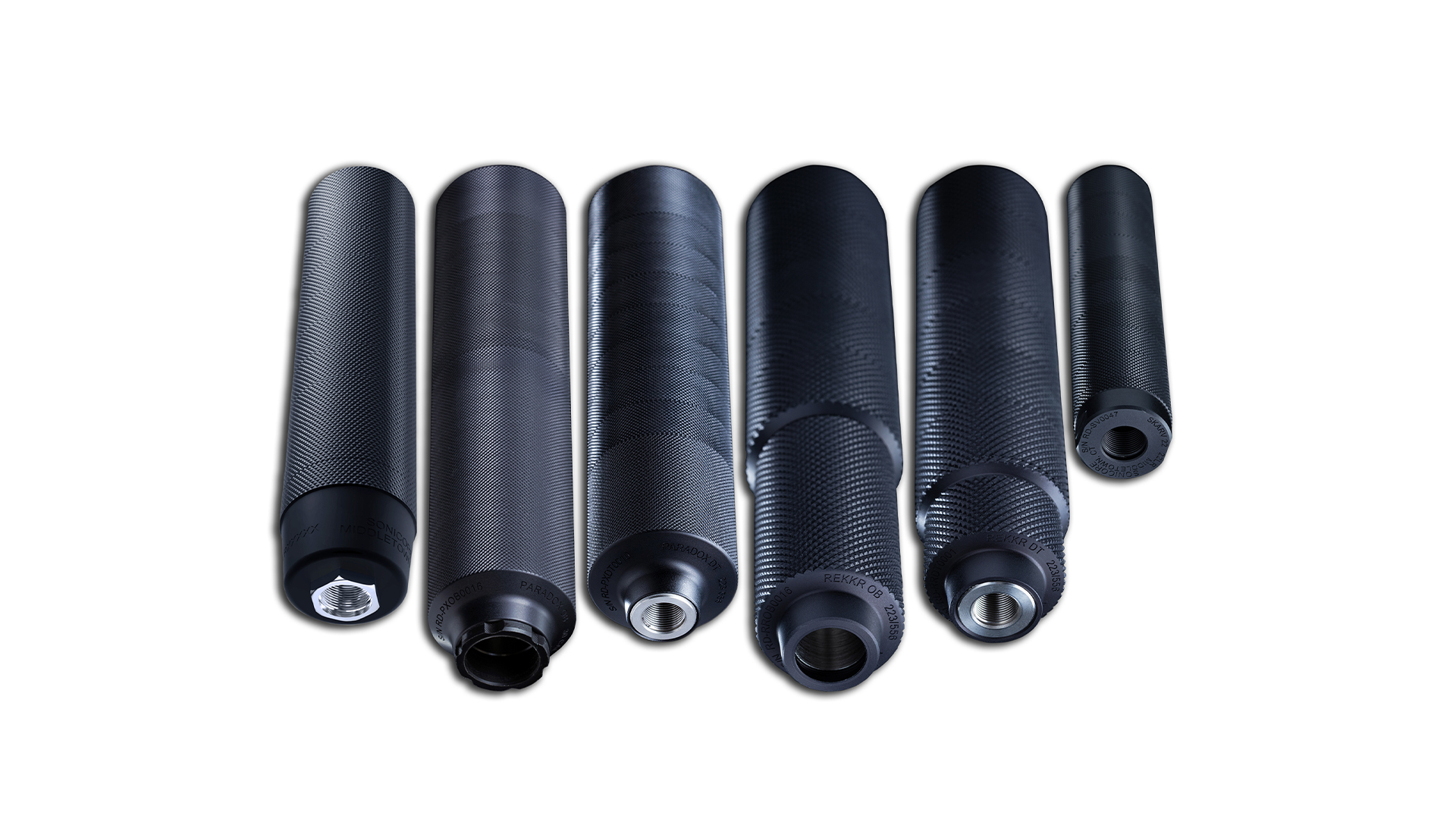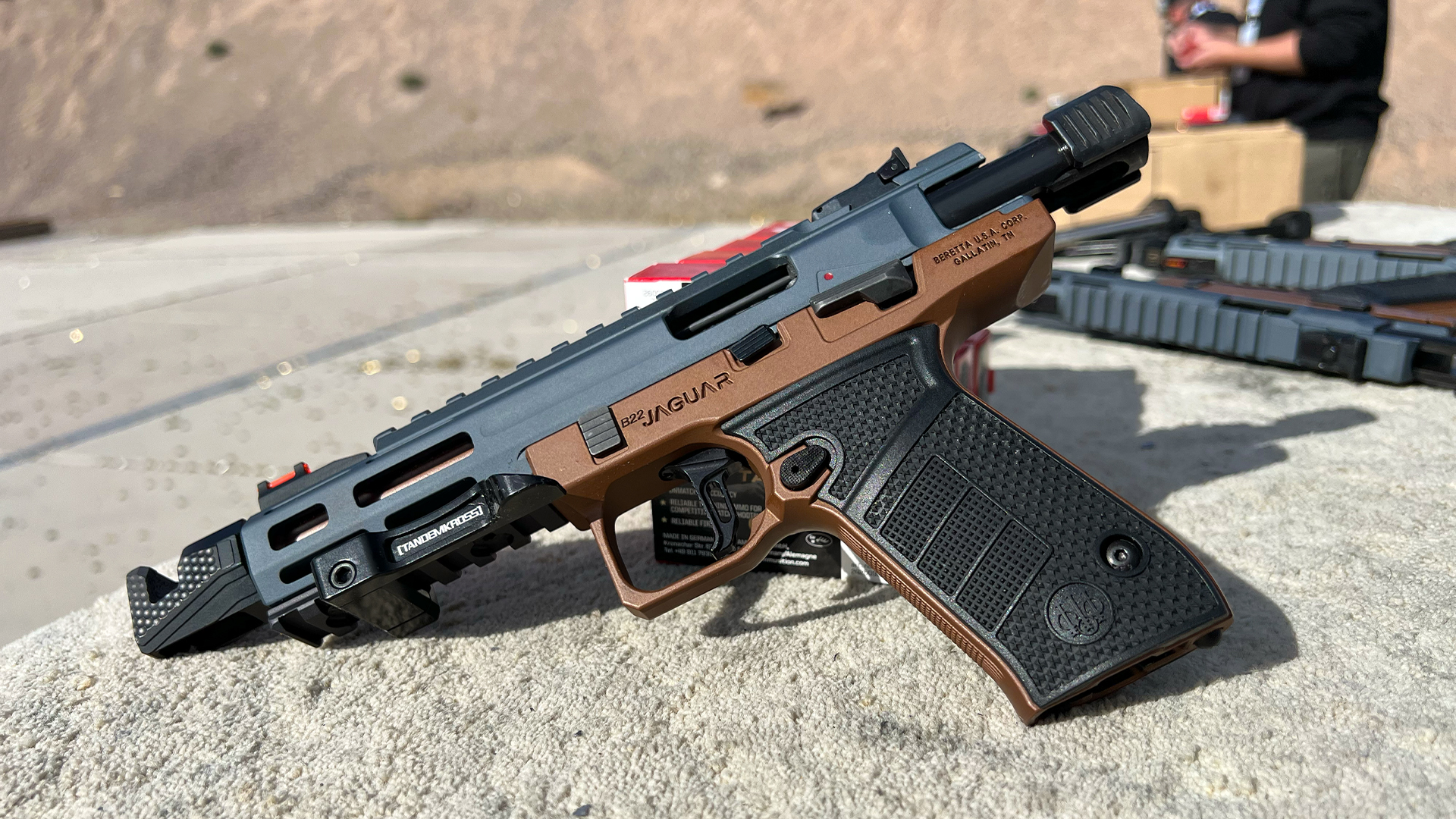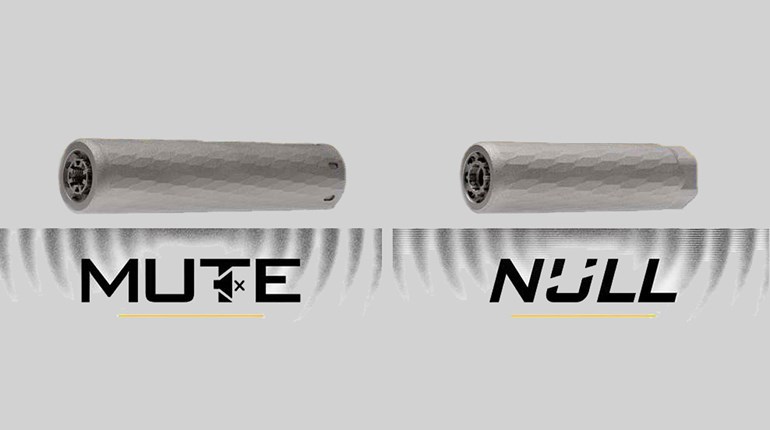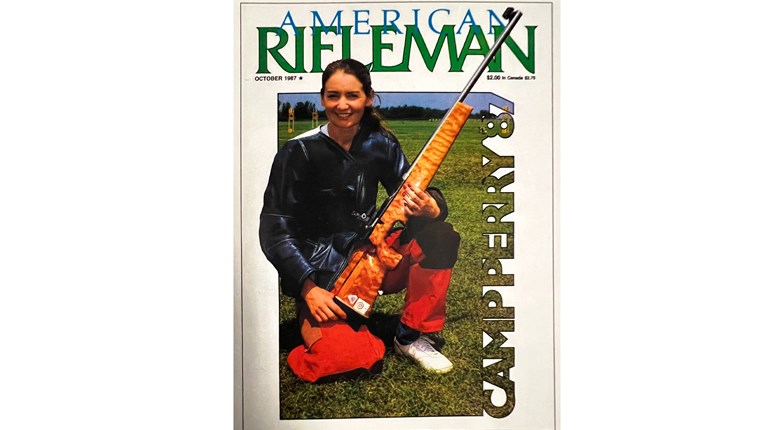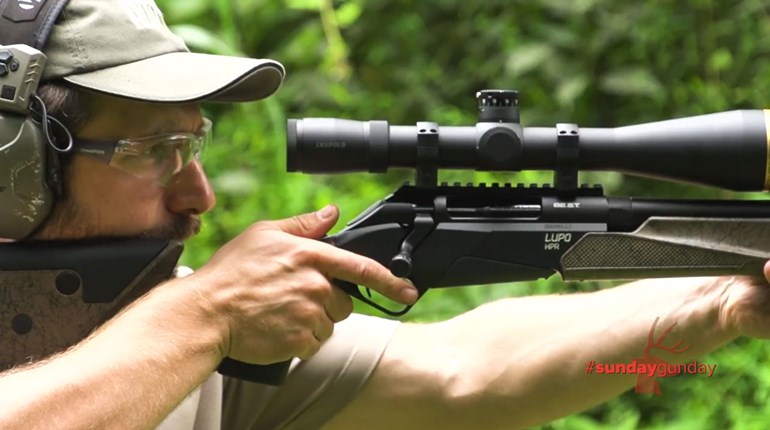
Can a gun fire out of battery? My pistol did, and I only became aware of it by chance when I happened to notice firing pin strikes that were off-center.
During an accuracy test with a 9mm Glock 19 in a Ransom Rest, I experienced some misfires. One cause was a dirty firing pin tunnel, which slowed down the firing pin and produced weak primer strikes.

I also noticed that with the misfires, sometimes when the trigger bar released the firing pin, the slide would move forward a fraction of an inch, revealing that the slide was not all the way forward. If the slide is not all the way forward, the barrel might not be in full lockup.
When I examined the misfires, some had a firing pin indent in the center of the primer, but some had a firing pin indent obviously off-center. The off-center strikes can only be produced by the barrel not being in full lockup position. If the barrel is not in full lockup, the cartridge is slightly below its normal position, and firing pin strikes will be high off-center.
If the rear of the barrel is not fully locked up into battery, it’s pointing higher on the target. Consequently, the bullet will go high. Some hits were unusually high. High hits can be caused by imperfect ammo or an inaccurate pistol, and aren’t necessarily caused by a barrel not in full lockup. But in this case, improper lockup was the culprit.
Was there any evidence that the gun fired with the barrel not in full lockup? Yes. Some fired cases had obviously off-center firing pin hits.

Figure 2 shows two fired cases. One can immediately identify the fired rounds as being from a Glock because of the telltale rectangle of primer flow. With Glocks, and many other guns, primer metal will flow back into the cutout in the breech face for the firing pin. On Glocks, the cutout in the breech face is a rectangle, and nearly all fired cases have rectangular shaped primer flow. The fired case on the left of Figure 2 has a centered firing pin hit. Note also the extent of the rectangular primer flow. The shape of the primer flow shows the upper and lower border of the slot, and there is more-or-less equal space between these borders of primer flow and the edge of the primer. The case on the right demonstrates an off-center hit―that fired! The firing pin hit is clearly off-center and only the bottom edge of the rectangular primer flow is visible on the primer with lots of space between it and the lower edge of the primer.

The off-center fired rounds produced some wildly high hits on the targets at 25 yards. Three high hits with a PPU 115-grain JHP factory load were 3.6-, 6.2- and 7.6-inches above the center of the main group (which measured 3.2 inches total spread). Measurements were made from close-up photographs to assess the distance from on-center and off-center firing pin strikes. That distance was in the neighborhood of .035-inch, indicating the barrel was that far short of full lockup when the round fired. A little math showed that a 4-inch barrel off by .035-inch lockup would produce a hit around 7.9 inches high at 25 yards. Even with the barrel .035-inch lower than it should be, the barrel and slide still have lug engagement in this pistol. The barrel has to drop much farther to disengage the lugs.
Being a good mad scientist, I tried to reproduce off-center firing and high bullet hits. The Glock was shot from the Ransom Rest again. Twelve rounds were fired to produce a cluster of hits on the target. For these rounds, the gun was examined to make sure that the slide was all the way forward and the barrel was in full lockup. Then, out of battery was artificially induced by pressing down slightly on the rear of the barrel so it was not in full lockup.
The rear of the barrel was easily pushed down, but stopped moving at a point and looked like the barrel position in this photograph.

Three shots were fired with the barrel out of battery. (As with the previous shooting session, not all out of battery attempts fired.) Hits from the out of battery shots were high above the group. This was repeated with another 15-shot target and produced the same result. Artificially inducing out of battery fire confirmed that the gun would fire when not fully locked up, and the high hits in my previous accuracy test were, indeed, likely due to the rounds that fired out of battery.
The advantage of this test was that each fired case was immediately recovered to examine the location of the firing pin strike on the primer. Fired cases had centered firing pin hits when the barrel was in battery. Fired cases had off-center firing pin hits when the barrel was out of battery that were identical to the one shown in the figure.

Primer design requires that the firing pin hit be at, or within a certain distance from the center of the primer so that the primer mixture is properly pinched between the firing pin strike and the primer anvil. If the firing pin hits too far off-center, the primer won’t go off. The misfire shown in the first figure is at the same distance from the edge of the primer as the off-center hits that did fire, showing that not all off-center hits, even in the same spot, will set off the primer.
It’s important to point out that this didn’t produce a dangerous condition. The case was fully in the chamber, so there was no risk of case rupture from having too much of the case unsupported by the chamber. Cases were measured with dial calipers and the off-center fired cases were not expanded more than the on-center fired cases, suggesting that the off-center fired cases were not excessively bulged because the gun unlocked too soon. The only consequence in this situation was high shots.
I’d heard that Glocks can fire out of battery, but this was the first time I was aware that mine would or did. Other pistol designs might be able to fire if not in full battery, too. However, due to the size and design of the primer, there is a limit on how far out of battery the barrel can be and still have the firing pin strike ignite the primer.
This gives readers something to watch for if they think their gun has fired out of battery. The position of the firing pin strike on the primer is a sure-fire way to confirm this behavior.














